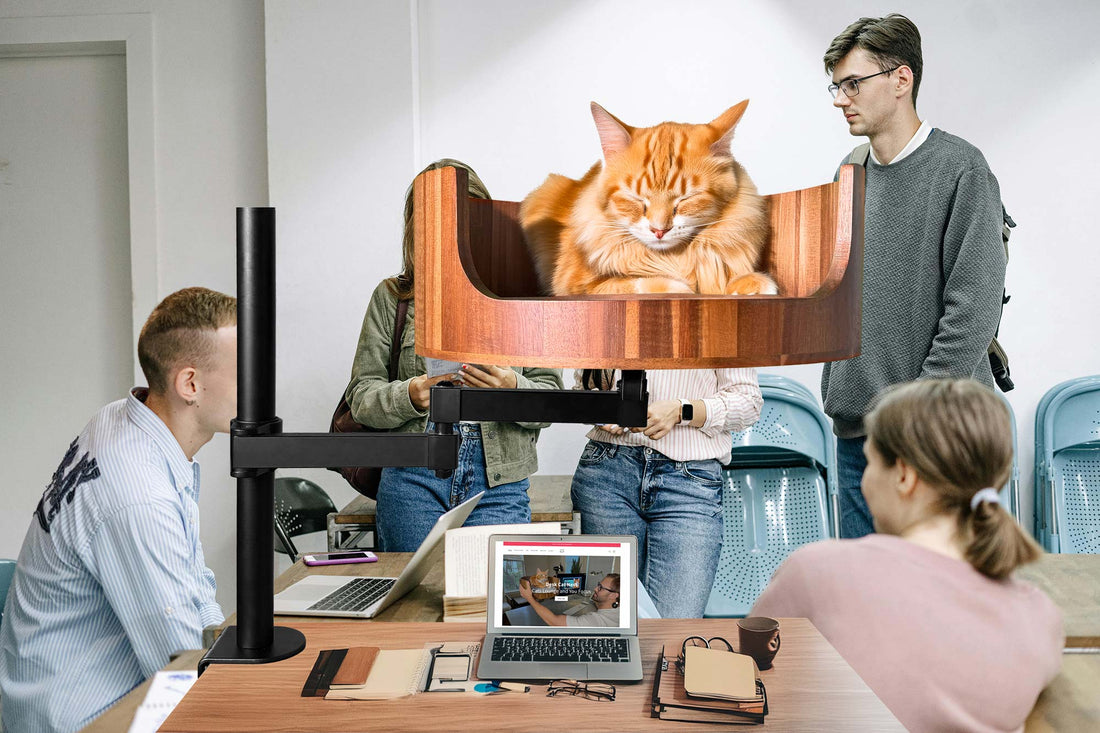
Why Does My Cat Keep Chewing on Plastic? Here's Why.
Share
If you have a feline friend who just can't seem to resist chewing on plastic, you're not alone. This puzzling behavior is more common than you might think, and there are a few reasons why your cat might be drawn to this habit. From stress and anxiety to nutritional deficiencies, there are several potential explanations for why your furry companion keeps gnawing on plastic objects.
In this article, we will explore the various reasons why cats chew on plastic and what you can do to help curb this behavior. We'll delve into how stress and anxiety can manifest in cats through chewing, as well as how to address these underlying issues. Additionally, we'll discuss the potential dangers of ingesting plastic and why it's important to take steps to prevent your cat from chewing on these materials. So, if you've ever found your kitty with a plastic bag in their mouth or noticed bite marks on your household items, keep reading to learn more about this common feline behavior.
1. Cats may chew on plastic for a variety of reasons, including boredom, stress, or seeking attention.
2. Chewing on plastic can be harmful to a cat's health, leading to dental issues or intestinal blockages.
3. Providing appropriate chewing alternatives, such as toys or treats, can help deter cats from chewing on plastic.
4. Ensuring your cat's environment is enriched with toys, scratching posts, and interaction can prevent them from seeking out plastic to chew on.
5. If your cat continues to chew on plastic despite attempts to deter them, consult with a veterinarian to rule out any underlying medical issues.
Why Cats Chew on Plastic
Cats may chew on plastic for a variety of reasons. One common explanation is that cats have a natural instinct to explore their surroundings with their mouths, similar to how babies use their mouths to learn about new objects. Additionally, the texture of plastic may feel satisfying to a cat's teeth and gums, providing them with a form of entertainment or stress relief. Some cats may also be attracted to certain chemicals or additives found in plastic materials, which can make them more appealing to chew on.
Health Risks of Chewing on Plastic
While chewing on plastic may seem harmless, it can pose serious health risks to cats. Plastic materials can break off into small pieces that can be swallowed by the cat, leading to digestive issues such as blockages or obstructions. Ingesting plastic can also cause injury to the cat's mouth, throat, or esophagus. Additionally, some plastics may contain harmful chemicals that can be toxic to cats if ingested or absorbed through their skin.
Preventing Cats from Chewing on Plastic
To prevent cats from chewing on plastic, it is important to remove any tempting plastic objects from their environment. This includes items such as plastic bags, packaging materials, and household items made of plastic. Providing alternative chew toys or treats can help redirect your cat's chewing behavior onto more appropriate items. It may also be helpful to provide mental and physical stimulation for your cat through interactive playtime or puzzle toys to reduce their urge to chew on plastic. If your cat continues to exhibit chewing behavior despite your efforts, consult with a veterinarian or animal behaviorist for further guidance.
FAQs for Customers Considering Desk Cat Nest as a Solution for "Why Does My Cat Keep Chewing on Plastic"
Q: Why does my cat chew on plastic?
There are a few reasons why your cat may be chewing on plastic. Cats often enjoy the texture and sound of plastic when chewing on it. Additionally, some cats may be drawn to the scent or taste of plastic. Chewing on plastic can also be a sign of boredom or stress in cats.
Q: Will the Desk Cat Nest help deter my cat from chewing on plastic?
While the Desk Cat Nest is designed to provide a comfortable and stimulating environment for your cat, it may not completely eliminate your cat's desire to chew on plastic. However, providing your cat with alternative chewing options, such as toys and treats, within the Desk Cat Nest can help redirect their behavior.
Q: How can I train my cat to stop chewing on plastic?
Training your cat to stop chewing on plastic can be a gradual process. Start by removing all plastic items your cat may be tempted to chew on and providing them with appropriate chewing alternatives, such as cat toys or chew treats. Reward your cat with treats or praise whenever they choose to chew on their toys instead of plastic.
Q: Is the Desk Cat Nest safe for my cat to use?
Yes, the Desk Cat Nest is designed with your cat's safety and comfort in mind. The materials used are non-toxic and durable, ensuring that your cat can safely rest, play, and relax in their new space.
Q: How can I make the Desk Cat Nest more appealing to my cat?
To make the Desk Cat Nest more appealing to your cat, try sprinkling some catnip inside the nest or placing their favorite toys and blankets within the space. You can also encourage your cat to explore the nest by placing treats inside and rewarding them for using it.
In conclusion, if you are struggling with the issue of your cat continuously chewing on plastic, investing in a Desk Cat Bed could provide a valuable solution. The elevated design of the bed offers a comfortable and safe space for your cat to rest and play, reducing the likelihood of them seeking out other objects, such as plastic, to chew on. Additionally, the soft and cozy material of the bed can satisfy your cat's natural instincts and promote overall well-being. By choosing a Desk Cat Bed, you can provide your feline companion with a suitable alternative to plastic chewing, ultimately creating a happier and healthier environment for both you and your cat.



















































